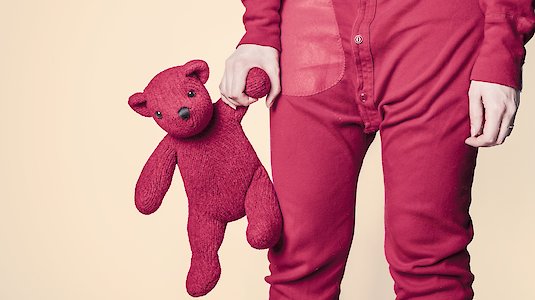I only let my skin have water and...
Our skin comes into contact with clothing and shoes for many hours and sometimes also with toys for longer periods of time. It is therefore particularly important that these products are harmless to health.
This is especially true for the protection of our children: they often not only have skin contact, but also sometimes put toys, but also textiles and even shoes in their mouths.
Risks from toys and clothing
In the EU's Rapid Exchange of Information System “RAPEX“ for dangerous consumer products, toys were the most common products warned about in 2020. This has been repeated for many years. Unfortunately, clothing and other fashion products are also always far ahead in these negative statistics. The most common risks reported, after the risk of injury from dangerous designs, are chemicals of concern.
Therefore: The Austrian Ecolabel also tests the harmlessness for us and our children.
The most important criteria for shoes, textiles and toys concern the following 3 topics:
- Materials and chemicals
- Quality
- Working conditions
When it comes to the requirements for chemicals, the aim is to achieve the lowest possible impact on the environment at the same time as protecting health. According to a study from April 2020, the fashion industry is the second largest polluter behind aviation and is responsible for ten percent of global pollution.
The criteria included for the quality of the products, which must be proven by means of official standards, are an important contribution to the durability and sustainability of the products and also prevent any risk of injury.
Even though the focus is elsewhere, we have decided to set strict criteria on working conditions for products that are largely produced in low-wage countries with a high degree of manual labour. We are convinced that an award for environmentally friendly and sustainable products must also include the protection of the people who produce them.
For these three product groups, we at the Austrian Ecolabel cooperate with the German Blue Angel. The criteria were drawn up and revised jointly with the involvement of Austrian and German manufacturers and interest groups. This cooperation strengthens the assertiveness of the Austrian Ecolabels and enables manufacturers to present themselves on the German and Austrian markets with the respective Ecolabels, whose criteria only have to be checked once.
Chemicals
An important issue in environmental protection is the production of materials. The production of textile fibres, whether natural or artificial, often pollutes large amounts of water. Similarly, the chrome tanning of leather is a process that is harmful to the environment and to people. Dyeing, bleaching and other finishing and treatment of textiles and leather, for example to increase durability and stability, or softness or "feel", etc., are achieved through further use of chemicals.
Textiles and leather, along with many other materials, are common components of toys. The great diversity of materials in this product group also means the use of a wide variety of production methods and chemicals. The European Toy Safety Directive sets a minimum standard to control health risks that can emanate from toys. Manufacturers guarantee by CE marking that these regulations are met. The criteria of the Austrian Ecolabel in some cases go far beyond these minimum standards, and they must be substantiated by tests.
One example of these regulations for toys is the European standard EN 71-3, which is used to determine what quantities of heavy metals are released from the toy and can thus be absorbed by humans. The limits for these toxic metals, such as lead, cadmium or chrome VI, are set as low as possible in the eco-label criteria.
Social criteria
About 80 % of the toys sold in Austria are manufactured in China, and the share in the clothing industry is also very high. In addition to dangerous working conditions, which repeatedly lead to many deaths in (fire) accidents, it is known that other abuses prevail - starvation wages and illegal deductions from wages, excessive working hours, lack of employment contracts, inhumane living quarters. In order to exclude this from the production of Ecolabel products, it must be proven by means of credible and strict certificates that the most important standards for the protection of workers are adhered to.
